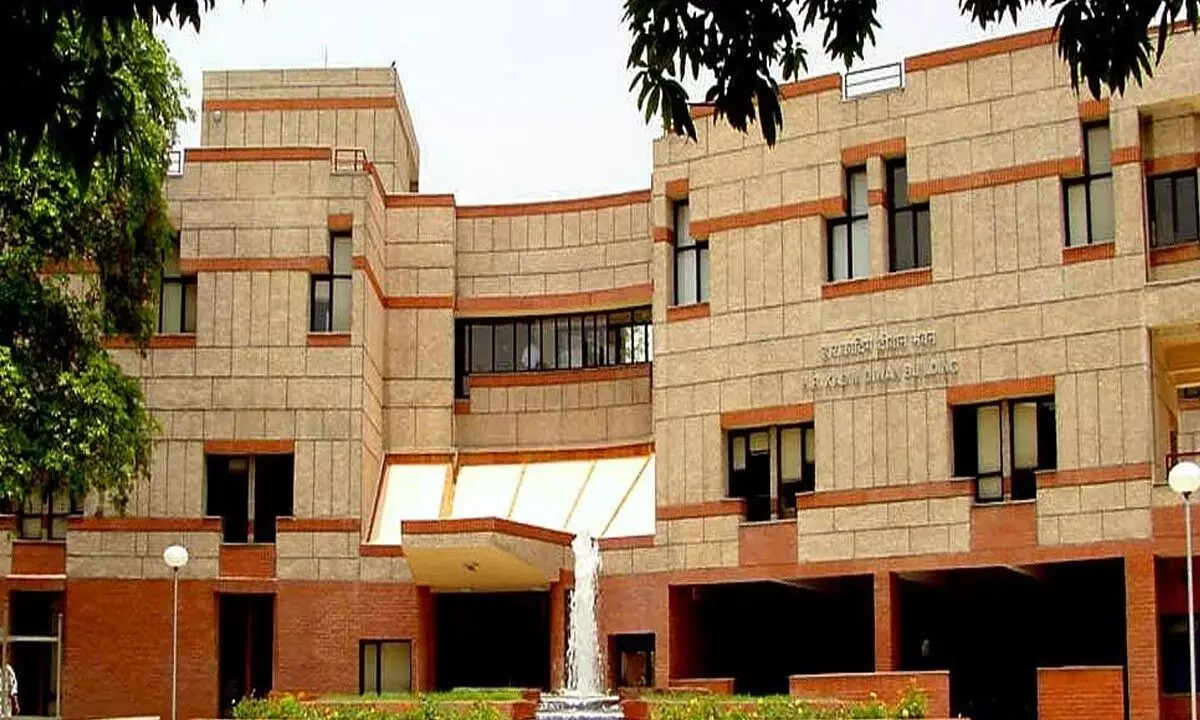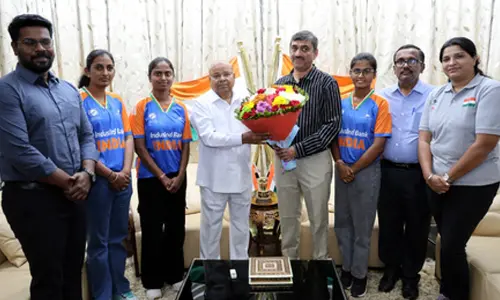IIT Kanpur's research offers new hope in cancer & brain disorders
Share :

The Indian Institute of Technology Kanpur (IIT-K) has achieved a breakthrough in biomedical research, with their study of G protein-coupled receptors (GPCRs) and chemokine receptor D6
Kanpur (UP): The Indian Institute of Technology Kanpur (IIT-K) has achieved a breakthrough in biomedical research, with their study of G protein-coupled receptors (GPCRs) and chemokine receptor D6, shedding new light on the potential treatment of cancer and brain disorders such as Alzheimer’s disease, Parkinson’s disease and schizophrenia.
According to an official release, the researchers visualised the atomic details of the receptors.
The information from this major advance opens up the possibility of designing new drug-like molecules to modulate these receptors under disease conditions.
This landmark work has been recognised internationally with its publication in the prestigious international journal, Science.
G protein-coupled receptors (GPCRs) are like tiny antennas on the surface of brain cells which help them to communicate and play a key role in many brain functions.
When these receptors do not work properly, there are issues with communication between the brain cells leading to diseases like Alzheimer's and Parkinson's.
This leads to the symptoms and progression seen in these diseases. Similarly, the chemokine receptor D6 functions in the immune system and is involved in the response to inflammation. In cancer, the receptor can influence the tumour environment, affecting how the cancer cells grow and spread.
The researchers used a high-tech method called cryogenic-electron microscopy (cryo-EM) to create detailed three-dimensional images of the receptors. This allowed them to study the 3D images of the receptors at the molecular level in great detail, helping to identify and design new drug-like molecules to correct problems with these receptors that cause disease conditions.
Prof. S Ganesh, Director, IIT Kanpur said: "The path-breaking research opens the doors to a new era in targeted medicine that can deliver solutions for cancer and neurological conditions for millions across the world. These diseases, which cause immense suffering and economic burden, could see a new era of effective treatment developed based on these findings. The success of this research project is also a testament to our successful collaboration with scientists across the world. This project saw the team from IIT Kanpur working with researchers from Japan, the Republic of Korea, Spain, and Switzerland. Hearty Congratulations to Prof. Arun Shukla and team, who have been doing outstanding research in GPCRs Biology."
This collaborative effort, involving international researchers not only enhances the understanding of complex diseases but also cements India's position as a leader in innovative biomedical research and highlights IIT Kanpur's commitment to addressing some of the most pressing health challenges.
The findings of the new research from IIT Kanpur will help in a greater understanding of the working of these receptors and lead to the development of new therapeutic approaches and targeted treatments for conditions such as Alzheimer's, which affects over 50 million people worldwide, and cancer, responsible for over 10 million deaths annually.
The results of the research will now facilitate the development of new drug-like molecules that can be tested for their therapeutic potential in animal models.













